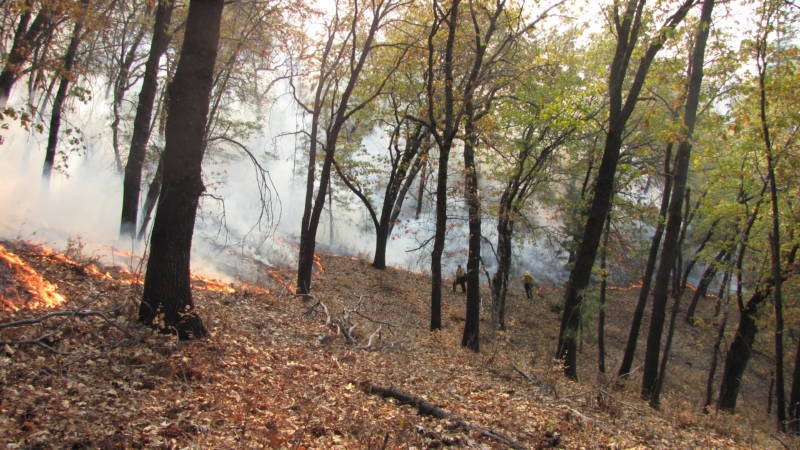Federal land managers on Wednesday proposed sweeping rule changes to a landmark environmental law that would allow them to fast-track certain forest management projects, including logging and prescribed burning.
The U.S. Forest Service, under Chief Vicki Christiansen, is proposing revisions to its National Environmental Policy Act regulations that could limit environmental review and public input on projects ranging from forest health and wildfire mitigation to infrastructure upgrades to commercial logging on federal land.
“We do more analysis than we need, we take more time than we need and we slow down important work to protect communities,” Christiansen told NPR.
The proposed rule changes include an expansion of “categorical exclusions.” These are often billed as tools that give land managers the discretion to bypass full-blown environmental studies in places where they can demonstrate there would be no severe impacts or degradation to the land.
John Gale, with the conservation group Backcountry Hunters & Anglers, says that if applied carefully and narrowly to certain projects, these exclusions could help lower the fire risk. But he’s skeptical because the administration recently rolled back protections for clean water and wildlife.

9(MDAxOTAwOTE4MDEyMTkxMDAzNjczZDljZA004))
